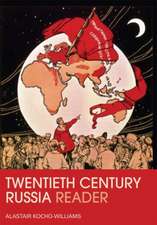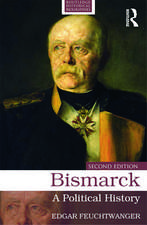The National Front
Autor Nigel Fieldingen Limba Engleză Hardback – 5 oct 2015
Preț: 1002.63 lei
Preț vechi: 1222.73 lei
-18% Nou
Puncte Express: 1504
Preț estimativ în valută:
191.88€ • 198.63$ • 162.18£
191.88€ • 198.63$ • 162.18£
Carte tipărită la comandă
Livrare economică 05-19 martie
Preluare comenzi: 021 569.72.76
Specificații
ISBN-13: 9781138938335
ISBN-10: 1138938335
Pagini: 262
Dimensiuni: 156 x 234 mm
Greutate: 0.52 kg
Ediția:1
Editura: Taylor & Francis
Colecția Routledge
Locul publicării:Oxford, United Kingdom
ISBN-10: 1138938335
Pagini: 262
Dimensiuni: 156 x 234 mm
Greutate: 0.52 kg
Ediția:1
Editura: Taylor & Francis
Colecția Routledge
Locul publicării:Oxford, United Kingdom
Public țintă
Postgraduate and UndergraduateCuprins
1. The Problem 2. Description of the National Front 3. National Front Ideology 4. National Front Ideology on Race 5. National Front Ideology on Liberalism and Permissiveness 6. National Front Ideology on Conspiracy Theory 7. The Fit Between National Front Ideology and the Beliefs of Members 8. The National Front and Political Action 9. The World-View of the National Front 10. The National Front and Deviant Motivation
Descriere
The National Front was one of the most controversial political parties in Britain. This exploration, first published in 1981, of the NF ideology and its meaning for members is based on a participation observation study which involved the development of relations with its headquarters, and with branch staff and members in several English cities. The fieldwork was carried out at marches, branch meetings and rallies, and candidates, activists, ordinary members and opponents of the NF were interviewed. Nigel Fielding examines in detail the ethnography of the National Front, describing its history, electoral performance and some demographic characteristics of its membership. He investigates the party ideology, concentrating on the key aspects of race, nationalism and conspiracy theory. The party’s involvement in overt and covert political action is discussed, and tolerance of ambiguity in adherence to ideology, are explored. In a final chapter the author discusses the case for regarding active NF membership as evidence of a commitment to an alternative conception of social reality founded on fundamental disagreement with the political and social order of the status quo. This book examines the problem of the relationship between the beliefs and actions of the political deviant in the context of a group which is involved in political activism.















